ARTICLE AD BOX
3 hours ago
By Alix Hattenstone, Jonathan Fagg and Miguel Roca-Terry, BBC England Data Unit

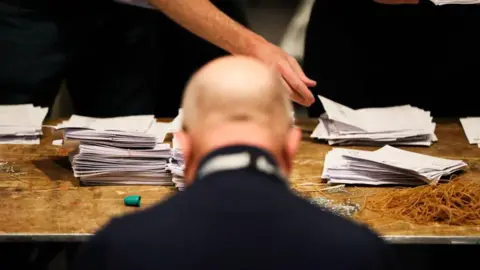 Getty Images
Getty Images
How much does my vote matter?
Turns out, quite a lot. In this election, seven seats were won by fewer than 100 votes.
That's up from just one seat in 2019 - when Sinn Fein’s Michelle Gildernew won Fermanagh and South Tyrone by 57 votes.
But there have been smaller margins. In 1886, Conservative John Edmund Wentworth Addison drew with the Liberal Democrat candidate in Ashton-under-Lyne. He became an MP when the local mayor cast the deciding vote.
Rules have changed since then, and no constituency came as close as that in 2024. But some candidates got in by the skin of their teeth.
The smallest majority of 2024
It was a tense night for the candidates in Hendon, the closest constituency of the 2024 election.
Labour candidate David Pinto-Duschinsky had tried - and failed - to win the seat before. But this time he squeezed in with just 15 more votes than his closest rival.
After a recount, he won with 15,855 votes. Ameet Jogia of the Conservatives had 15,840.
This is not the smallest winning margin in modern times. Since World War Two, two seats have been won by just two votes each – once by the Liberal Democrats in 1997, and once by the Scottish National Party in 2017.
Three recounts needed

 Peter Henley/BBC
Peter Henley/BBC
Votes in Poole were counted four times
Veteran Tory MP Sir Robert Syms endured three recounts during an agonisingly long night in Poole, only to see his 27 years as an MP ended by 18 votes.
He received 14,150 votes, just below the 14,168 for Labour's candidate Neil Duncan-Jordan.
Peter Henley, the BBC’s political editor for the South of England, said the count went on so long that the press room had to be cleared for a morning art class – a nude life drawing session.
'Morally wrong' candidate scrapes through

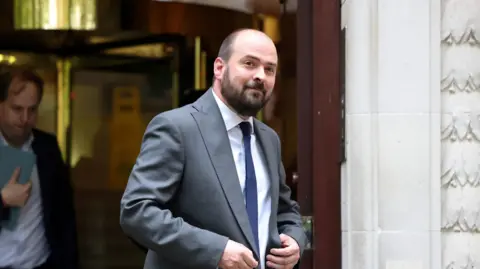
Conservative Party chairman Richard Holden's rivals had accused him of being "parachuted into a safe seat"
Before voting even began, there was controversy over Richard Holden standing as a candidate in Basildon and Billericay.
Local Tory councillor Andrew Baggott had called it "morally wrong".
"Yes, he’s chairman of the party, but so what? What has he done for Basildon and Billericay? Nothing."
Mr Holden's previous constituency of North West Durham, about 300 miles away, had been abolished under the constituency boundary review.
He would ultimately win Basildon and Billericay with 12,905 votes, 20 more than Labour's Alex Harrison.
MP at 22

 Emma Baugh/BBC
Emma Baugh/BBC
Sam Carling, 22, will be one of the youngest MPs of this election
At 22 years old, Labour's Sam Carling beat a Conservative candidate who had been in the seat almost as long as he had been alive.
He received 14,785 votes, just 39 more than Conservative Shailesh Vara, who had represented North West Cambridgeshire for almost two decades.
Mr Carling called his victory over Mr Vara a “political earthquake”.
'Mistakes'

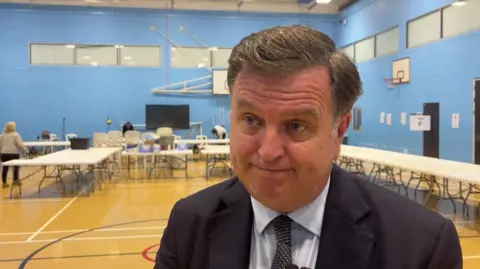
Mel Stride told the BBC "we now need to go away and rebuild our party"
It was a night in which several high profile Conservatives were ousted. But former work and pensions secretary Mel Stride was one of the few who survived.
He had represented Central Devon since its creation in 2010. In 2019 he won with a majority of 17,721.
This time, his win wasn't quite so comfortable. He polled just 61 more votes than Labour's Ollie Pearson, who got 16,770.
Mr Stride told the BBC: “There’s a clear message that we received from the public.
"We now need to go away and rebuild our party and think long and deeply about what has happened over the last 24 hours and get ourselves back in a position where we are the natural party of government.”
Slashed majority

 Conservative Party
Conservative Party
When elected in 2015, Alan Mak became the first MP of ethnic Chinese origin
Mel Stride isn't the only candidate who saw his majority slashed.
Conservative Alan Mak first became MP for Havant in 2015 with a majority of 13,920.
And that number kept on rising - until now. His majority fell from almost 22,000 votes in 2019, to just 92 in 2024.
Mr Mak received 12,986 votes, just above Labour candidate Stefanie Harvey on 12,894.
The final seat in England

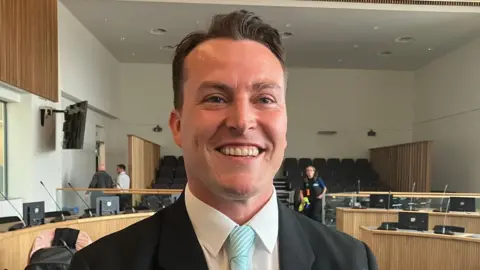
Election nerds were waiting with bated breath for the final result in England to be announced, in South Basildon and East Thurrock.
After a lengthy recount, it went to Reform UK's James Murdock. He received 12,178 votes, beating the Labour candidate by 98 and replacing Conservative Stephen Metcalfe.
Mr Murdock has become the fifth Reform UK MP.
Which seats were the safest?
It's fair to say that some candidates were a bit more comfortable than others on election night.
Labour’s Peter Dowd won Bootle with the largest majority of the election - 21,983 more than his closest rival.
The second biggest majority was also a Labour one. Catherine West won Hornsey and Friern Barnet with a majority of 21,475.
Former leader of the Liberal Democrats, Tim Farron, won the third largest. He received 31,051 votes in Westmorland and Lonsdale – 21,472 more than the Conservatives in second place.



 10 months ago
47
10 months ago
47
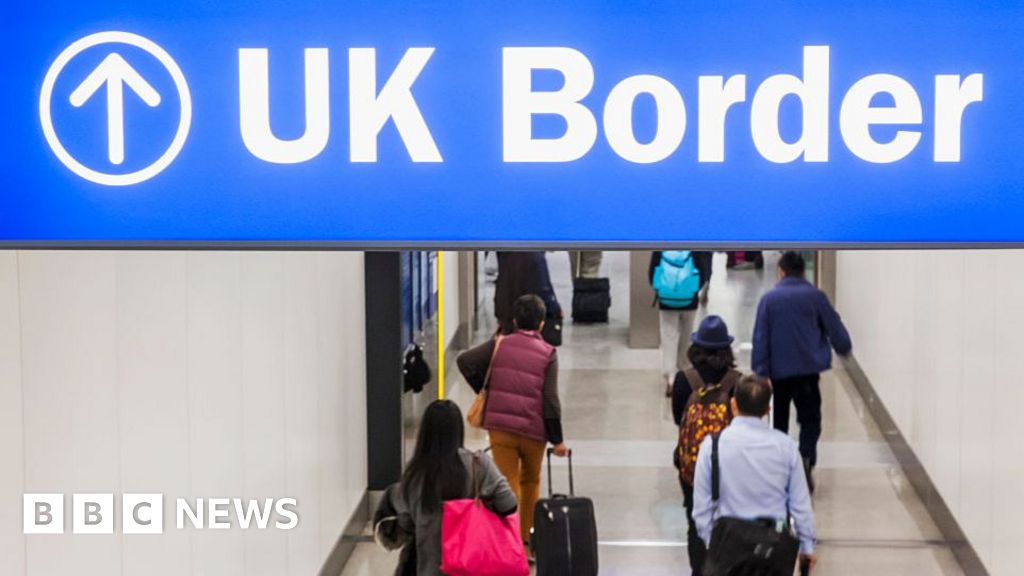
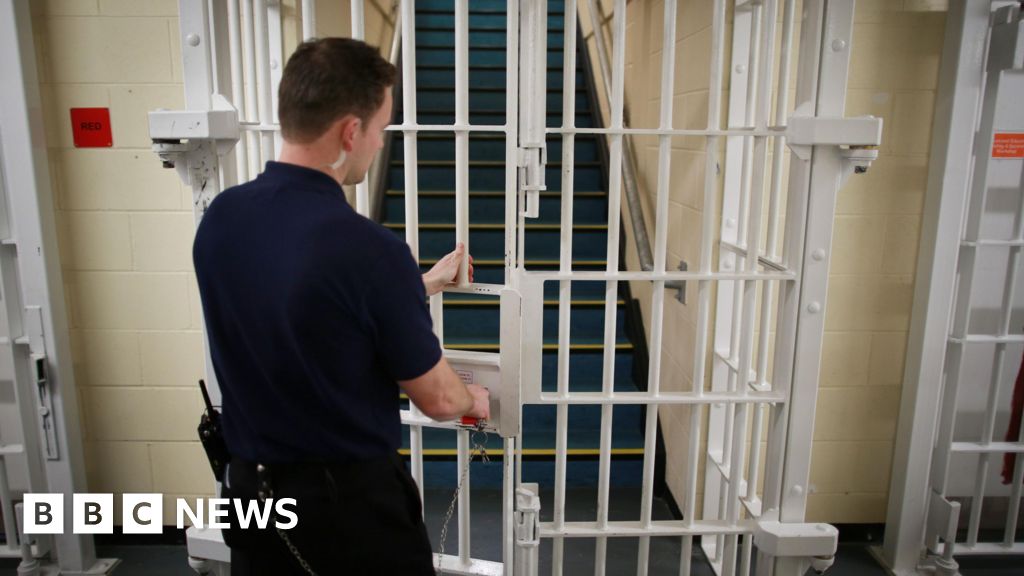
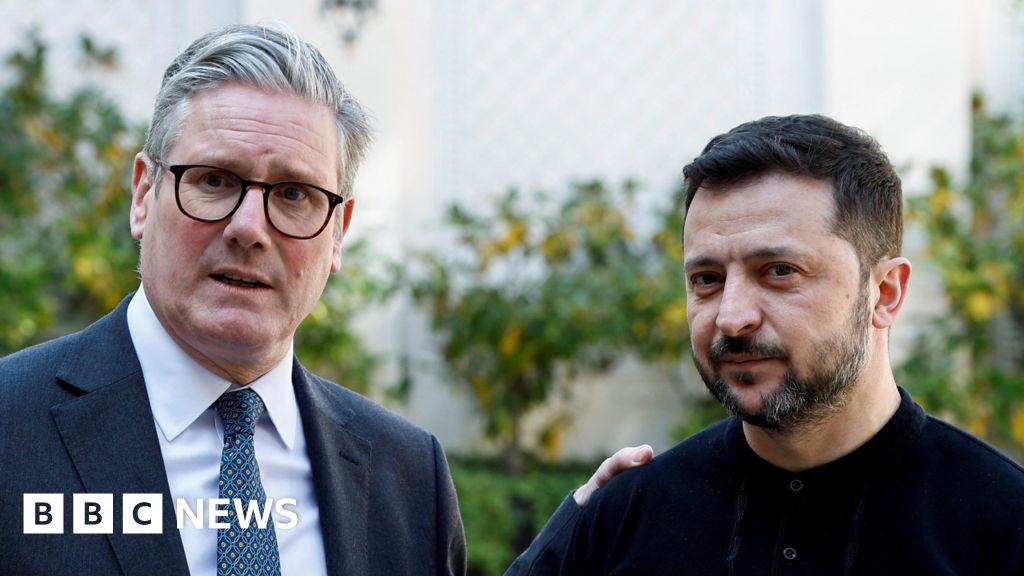





 English (US) ·
English (US) ·